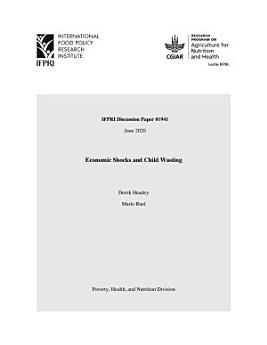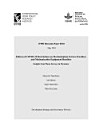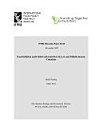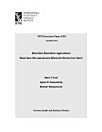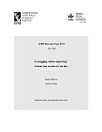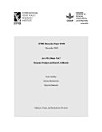Economic shocks and child wasting
Headey, Derek D. · Ruel, Marie T.
IFPRI Discussion Paper Ibhuku elingu-1 · Intl Food Policy Res Inst
I-Ebook
37
Amakhasi
family_home
Kufanelekile
info
reportIzilinganiso nezibuyekezo aziqinisekisiwe Funda Kabanzi
Mayelana nale ebook
In developing countries macroeconomic volatility is common, and severe negative economic shocks can substantially increase poverty and food insecurity. Less well understood are the implications of these contractions for child acute malnutrition (wasting), a major risk factor for under-5 mortality. This study explores the nutritional impacts of growth shocks over 1990-2018 by linking wasting outcomes collected for 1.256 million children from 52 countries to lagged annual changes in national income. Difference-in-difference estimates suggest that a 10% annual decline in national income increases moderate/severe (WHZ<-2) and severe wasting (WHZ<-3) by 14 and 22 percent. An exploration of possible mechanisms suggests negative economic shocks increase risks of diarrhea, fever, and maternal underweight prevalence, and reduce child dietary diversity. Applying these results to the predicted economic impacts of COVID-19 suggests that millions of pre-school children are at increased risk of wasting and wasting-related morbidity and mortality unless urgent preventative action is taken.
Nikeza le ebook isilinganiso
Sitshele ukuthi ucabangani.
Ulwazi lokufunda
Amasmathifoni namathebulethi
Faka uhlelo lokusebenza lwe-Google Play Amabhuku lwe-Android ne-iPad/iPhone. Livunyelaniswa ngokuzenzakalela ne-akhawunti yakho liphinde likuvumele ukuthi ufunde uxhunywe ku-inthanethi noma ungaxhunyiwe noma ngabe ukuphi.
Amakhompyutha aphathekayo namakhompyutha
Ungalalela ama-audiobook athengwe ku-Google Play usebenzisa isiphequluli sewebhu sekhompuyutha yakho.
Ama-eReaders namanye amadivayisi
Ukuze ufunde kumadivayisi e-e-ink afana ne-Kobo eReaders, uzodinga ukudawuniloda ifayela futhi ulidlulisele kudivayisi yakho. Landela imiyalelo Yesikhungo Sosizo eningiliziwe ukuze udlulise amafayela kuma-eReader asekelwayo.
